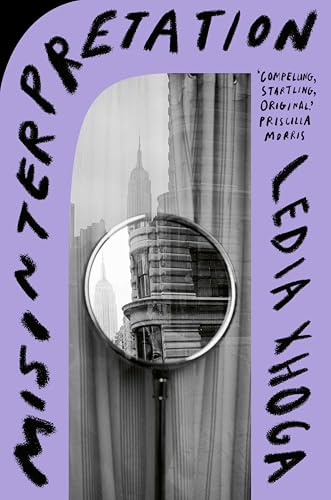The psychiatrist says that having my wife interpret during the therapy sessions is not an option. Relatives are not allowed. The training is only forty hours. Would you prefer to take it all in one week or in two weeks. Here's a link to the registration. Can you go ahead and register?
If you can, for which I'll be grateful, I'll need you to sign some paperwork. You will need to scan and email it to the organisation that sponsored my recovery. Can I stop by your office tomorrow?
Thank you!
A.
Одна девушка живет в Нью-Йорке и работает переводчицей. Ее рабочие языки — албанский, русский, итальянский. Однажды ее просят попереводить на приеме у стоматолога для одного усталого и немного странного мужчины. Прием у стоматолога, как водится, по уровню боли и стресса проходит так, что дальше мужчина уговаривает ее пойти с ним к психотерапевту, обсудить странные сны и пытки. Она, разумеется, соглашается.
Это очень странный, но и очень захватывающий роман. Безымянная героиня, кажется, помогает всем потерянным и потерявшим албанцам, спасает их, как некоторые бездомных котят. Ее мужа зовут как книжный шкаф из Икеи, ее подруга играет на скрипке и недоумевает, почему кто-то из Албании переезжает в Америку, а не в Чешскую республику, там ведь так красиво, ну. Ее новоприобретенную подругу преследует какой-то родственник, и, как у Набокова, «я тоже плохо себя чувствую».
Части про Албанию — родственников, еду, поход с мамой в ресторан, местные привычки и проводы в аэропорту — рекомендую прочитать всем уехавшим и оставшимся. Части про Нью-Йорк — всем любителям триллеров. Финальные страницы — всем поклонникам Тони Сопрано. Если вы вдруг не обнаружили себя ни в одной из вышеописанных категорий, у меня есть для вас пейзаж:
A wan moon was struggling to come out. The sky was grey and heavy. The night before, while everyone slept, it had snowed. A thin layer had covered the streets and dirty piles had accumulated to the sides and in between cars after the ploughs had passed. A portly man was taking his two poodles out for their evening walk. With their long, slim limbs and pink booties, they minced about in the snow, reminding me of ballerinas. A group of teenagers, oblivious to the cold and wearing short sleeve T-shirts, sat on a stoop, teasing one another, laughing, smoking pot. They paused their conversation as I walked by and said good evening.

